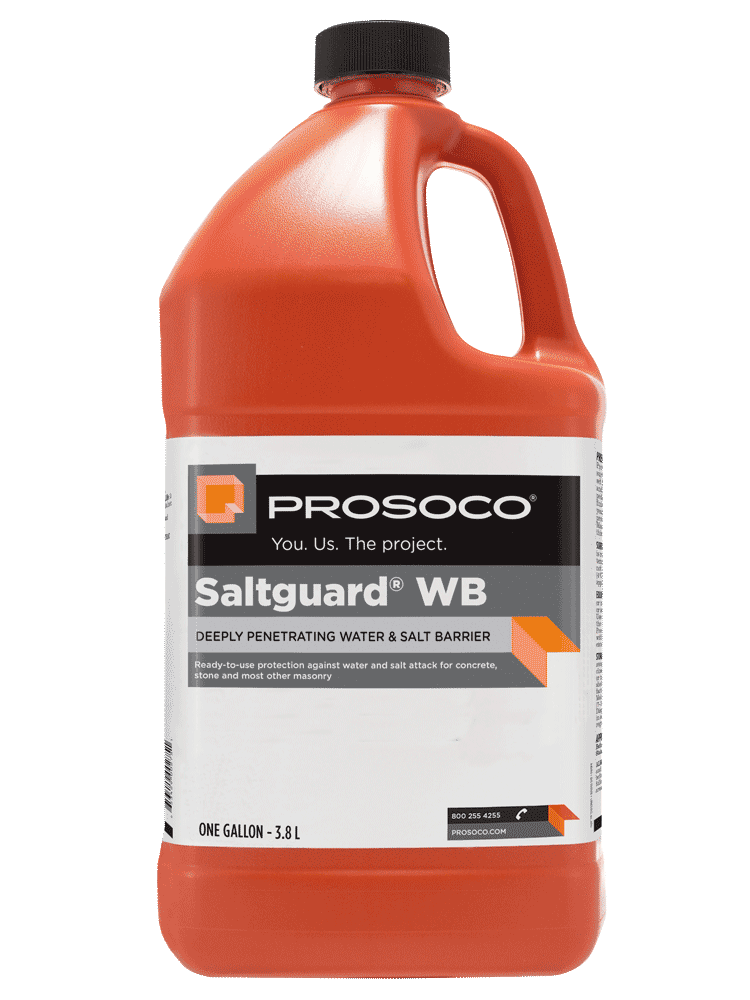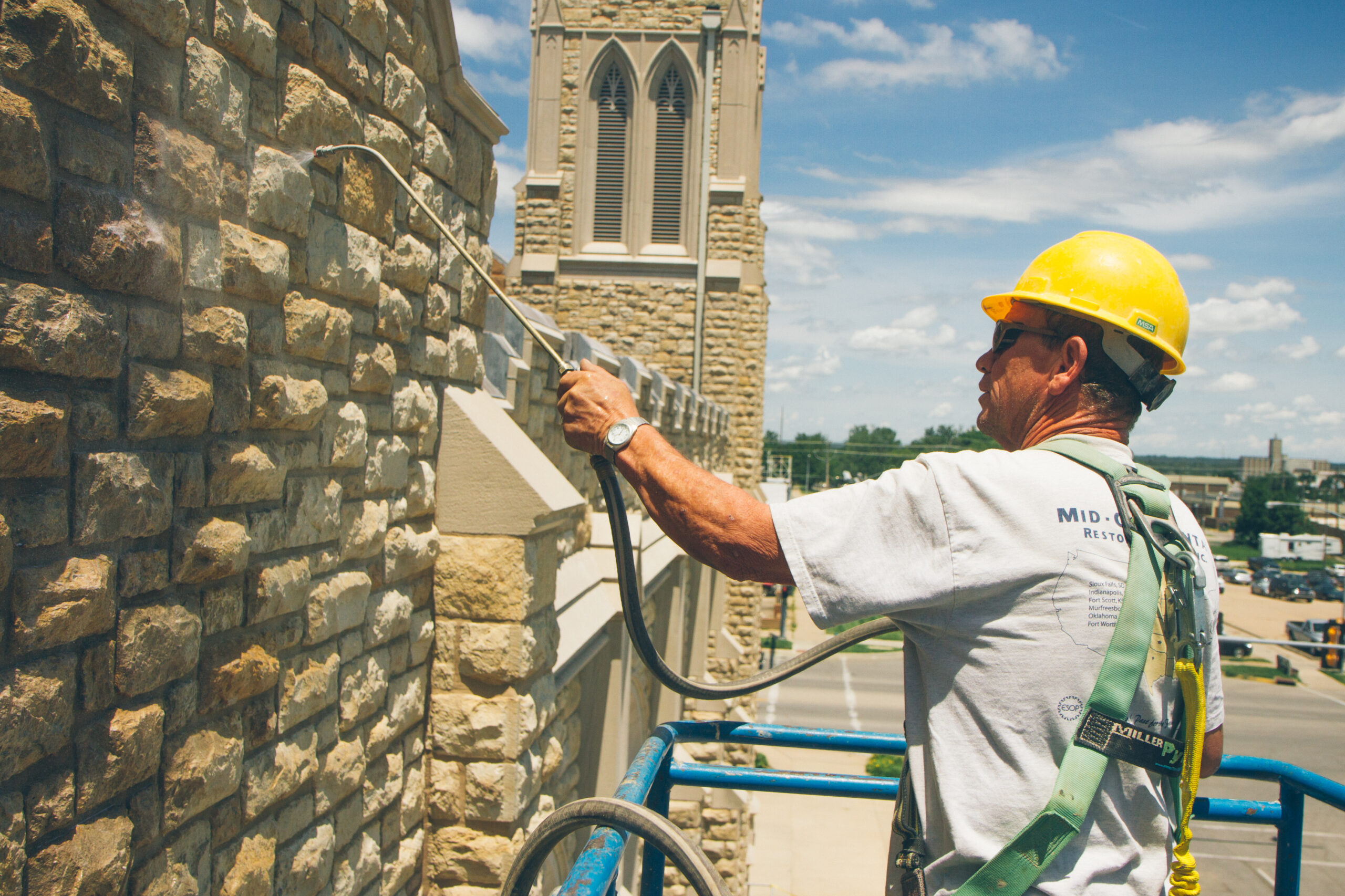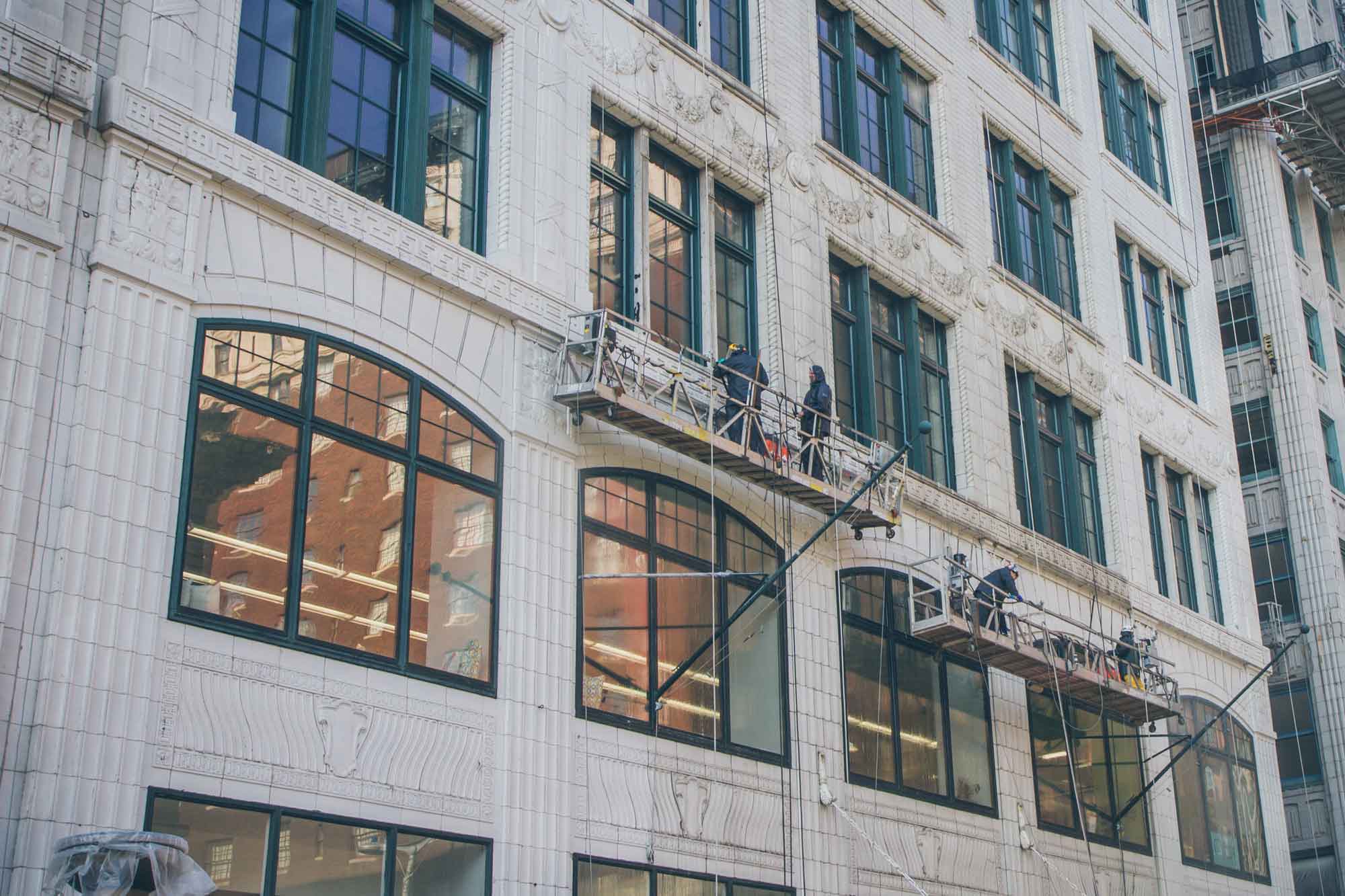When winter arrives and snow and ice blanket our streets and walkways, many homeowners turn to salt as their go-to solution for de-icing. While salt effectively melts ice and ensures safer mobility, it comes with a set of long-term consequences for your driveways and sidewalks that cannot be ignored. In this article, we'll delve deeper into the adverse effects of salt use on these surfaces, the potential costs of replacing them, and how preventive maintenance with products like Saltguard WB can extend their lifespan.
The Hidden Dangers of Salt
While salt might seem like a quick and effective remedy for slippery surfaces during the winter, it can wreak havoc on your concrete driveways and sidewalks over time. The seemingly innocuous act of spreading salt to melt ice can set off a chain reaction of damage that begins at the surface and gradually works its way deeper into the structure.
Concrete Cracking:
One of the most common long-term effects of salt use on concrete is cracking. Concrete is porous by nature, and salt can penetrate these pores, weakening the material. When temperatures fluctuate, the trapped moisture expands and contracts, causing stress on the concrete. Over time, this leads to the development of cracks, which, if left unchecked, can propagate and result in structural issues.
Scaling:
Another prevalent issue is salt-induced scaling. Scaling occurs when the surface of concrete flakes off, leaving behind a pitted, uneven, and unsightly appearance. This deterioration is not only aesthetically unpleasing but can also create hazardous tripping hazards, especially on sidewalks where pedestrian safety is paramount.
Metal Corrosion:
Many homeowners have metal fixtures in their driveways and sidewalks, such as expansion joints, railings, and decorative elements. Salt can accelerate the corrosion of these metal components. The corrosive reaction between salt and metal can lead to rust formation, weakening the structural integrity and necessitating costly repairs or replacements.
The Cost of Replacing Damaged Surfaces
The cumulative effect of these issues can be a considerable financial burden for homeowners. The cost of replacing a driveway or sidewalk can vary widely depending on several factors, including size, materials, and labor costs. On average, homeowners can expect to spend thousands of dollars on such replacements.
Replacing a concrete driveway or sidewalk is not just a financial matter; it's also a time-consuming and disruptive process. It involves excavation, removal of the damaged concrete, and the pouring and curing of new concrete. During this period, access to your property may be restricted, inconveniencing your daily life.
Preventive Maintenance with Saltguard WB
To avoid the hefty costs and unsightly damage caused by salt, proactive measures are key. One effective solution is to apply a product like Saltguard WB. This water-based, penetrating sealer acts as a shield for your concrete surfaces, guarding them against the corrosive effects of salt and other de-icing chemicals.
How Saltguard WB Works:
Surface Protection: Saltguard WB penetrates the concrete, creating a protective barrier that prevents salt and moisture from infiltrating the surface. By doing so, it reduces the risk of cracking, scaling, and other salt-related damage.
Longevity: Regular application of Saltguard WB can significantly extend the lifespan of your driveways and sidewalks. This proactive approach is far more cost-effective than waiting for costly repairs or replacements.
Environmental Benefits: Unlike some traditional sealers, Saltguard WB is water-based and environmentally friendly. It doesn't release harmful fumes or chemicals into the atmosphere, making it a safe choice for both your property and the environment.
In conclusion, while salt is a winter lifesaver, it can have detrimental long-term effects on your driveways and sidewalks. The cost of replacing these surfaces can be substantial, both in terms of finances and inconvenience. However, by taking preventive action and using products like Saltguard WB, homeowners can protect their investments, extend the life of their driveways and sidewalks, and save money in the long run. So, before the next snowfall, consider safeguarding your property with the right maintenance strategies. Your concrete surfaces will thank you for it, and your wallet will too.



